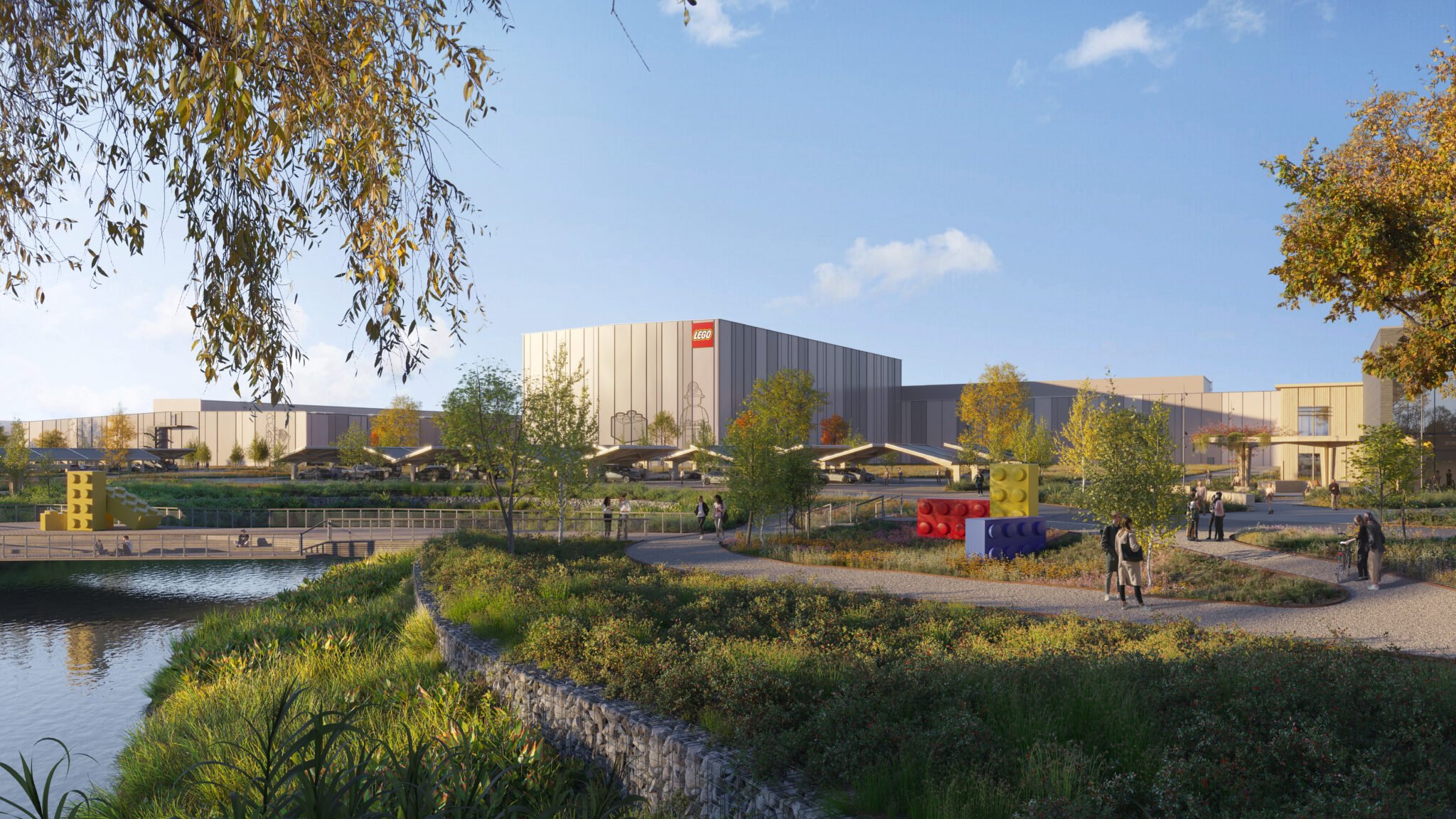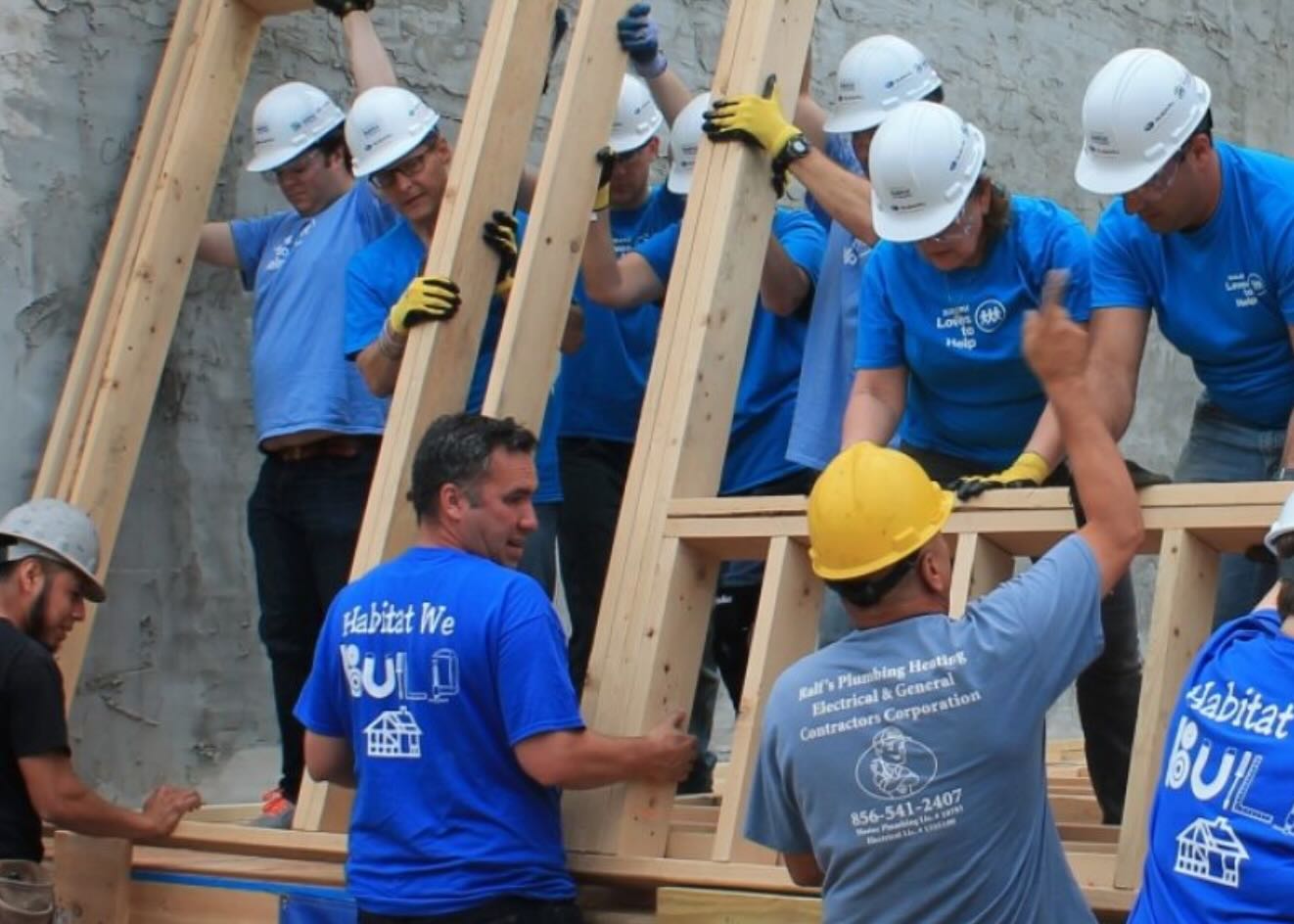Back in April, Virginia governor Glenn Youngkin was delighted to appear on FOX News to talk about the big news in his state: LEGO, the beloved Danish toymaker, had just broken ground on a $1 billion factory in Chesterfield County near the state capital of Richmond. The arrival of the LEGO Group was a huge win for Richmond and Virginia. The factory will create about 1,760 jobs, and LEGO’s decision to build near Richmond sends a message to other companies thinking about site location. While many consumers enjoy the creativity of LEGO’s building blocks, businesspeople admire LEGO for its technological sophistication. Each LEGO brick, for example, is precisely manufactured to within 1/10 of a hair’s width of its designated measurements. When a sophisticated and successful company—LEGO had global revenues of over $9 billion in 2022—chooses a small city as its manufacturing hub, other companies take note.
So Youngkin was happy to boast a little. LEGO’s arrival “is a big deal,” he told Fox’s Neal Cavuto. “LEGO had its choice of states… They chose to come to Virginia because, I believe, Virginia is the best place to locate a factory and to chart a future.”

But the full story is more complicated than Youngkin suggested. LEGO chose Richmond partly because economic development officials there committed to supporting its goals around environmental, social, and governance issues, issues which Youngkin has publicly opposed. The LEGO story shows the tension between political culture wars and the need for economic development—and how Richmond-area development leaders navigated that tension.
Within the corporate world, it’s hard to find a company that doesn’t tout its commitment to ESG principles. Many companies “are using a community’s strength in ESG factors…in how they are scoring communities against one another,” wrote Jennifer Wakefield, president and CEO of the Greater Richmond Partnership, the regional economic development authority, in the Richmond Times-Dispatch. “We feel Richmond has a significant advantage here.”
A consulting firm called Wadley Donovan Guttshaw brought the LEGO project to the Greater Richmond Partnership (GRP) in late October 2021. Richmond had attracted the attention of “a very large, capital-intensive manufacturing project that was interested in Virginia because of the Virginia Clean Energy Act,” says Wakefield. That legislation, signed by Democratic governor Ralph Northam in 2020, mandates that Virginia’s two power companies, Dominion Energy Virginia and Appalachian Electric Power, produce 100% renewable energy by 2050. Any utility that didn’t meet the new standards would have to pay into a fund used to train members of historically disadvantaged communities for jobs in the clean energy sector.

Wadley Donovan Guttshaw sent a detailed questionnaire requesting information about different properties that might fit their client’s needs. One was that they wanted their new factory to be carbon-neutral and would need help from a utility to achieve that goal. By January 2022, the still anonymous firm had narrowed its Virginia options to one site: Meadowville Technology Park in Chesterfield County. Already home to, among other companies, an Amazon fulfillment center and a Capital One data center, Meadowville offered easy access to highways, railroads, and the Richmond Marine Terminal. In March, GRP was informed that the company was LEGO.
It didn’t take the development officials long to realize just how much ESG principles mattered to LEGO. The company does, after all, make toys primarily for children and has an interest in both growing its customer base and protecting a planet on which its customers can live. Back LEGO has invested over $500 million in wind farms to power its factories. In 2015 it launched a Sustainable Materials Center to find ways to eliminate single-use plastic in its products. And LEGO promotes an ethos of diversity and inclusion. One example: It sells a LEGO “Everyone is Awesome” set—the name is an homage to 2014’s The LEGO Movie—of Lego minifigures of all different colors against a rainbow-colored background.
In the spring and early summer of 2022, the GRP team worked to address LEGO’s needs. Dominion Energy could help the company build an on-site solar plant that would match its total energy requirement. A partnership with the Virginia Talent Accelerator Program, a state program that connects companies with community colleges in Virginia for workforce development, helped address LEGO’s personnel needs. Richmond, Wakefield pointed out, was also an excellent place to recruit a diverse workforce; it has a non-white population of about 40% and is home to two historically Black colleges.
About 18 months before, Wakefield had helped land a $460 million investment from CoStar, a real estate data research firm. CoStar had made no bones about its commitment to ESG and diversity, equity and inclusion. Wakefield, who suspected that the firm was also considering North Carolina for its planned research and technology center, pointed out that North Carolina had passed a hugely divisive bill that restricted the public bathrooms trans people could use. It worked.
“Richmond is central to our DE&I efforts, which are a cornerstone of our operations and our CoStar Group’s ESG commitments,” a company spokesperson told Worth.
But Virginia’s politics were changing. In 2021, Glenn Youngkin, a co-CEO of private equity firm Carlyle Group, won the governorship focusing his campaign on education—specifically, by attacking the teaching of critical race theory in public schools and expressing skepticism about the ways schools supported transgender students. After the campaign, he urged a repeal of the Clean Economy Act, saying that the law’s timelines were impossible to achieve.
Youngkin has always been pro-business, but in the past he as also strongly supported ESG policies. As late as December 2020, Youngkin helped host Carlyle Group’s annual “Sustainability Workshop.” A company report on the event noted that Youngkin “kicked off the day by highlighting the rising importance of ESG themes such as climate change and diversity and inclusion…” Companies that “perform well on ESG issues material to their businesses financially outperform companies that don’t prioritize these issues,” the firm said. It was reasonable to think that the new governor, whatever his campaign rhetoric, was, overall, an ally.
In June 2022, LEGO went public with its decision to build in Meadowville. The new, solar-powered, carbon-neutral facility would help LEGO adapt to changing supply chain conditions and reduce shipping costs. In a subsequent statement, LEGO emphasized that it was “committed to providing safe, diverse, and inclusive workplaces where everyone feels welcome.” They would include “well-being areas,” parents’ facilities, and “multi-faith rooms.” The company would offer 26 weeks of fully paid parental leave for primary caregivers and eight weeks for secondary caregivers—regardless of who the parents were. The average salary, LEGO said, would be about $60,000 a year.
Online, the company posted a statement addressing its tension with Youngkin. Despite the governor’s opposition to climate change measures, LEGO said, the company was confident it could “advance our ambitious sustainability agenda.” And while Youngkin was trying to ban critical race theory, LEGO said, “We stand against racism and inequality.”
A few weeks later, Glenn Youngkin joined LEGO for its groundbreaking ceremony. “Everything is awesome in the Commonwealth” of Virginia, he proclaimed. Standing next to LEGO officials, he lifted a shovel and posed for a picture.







